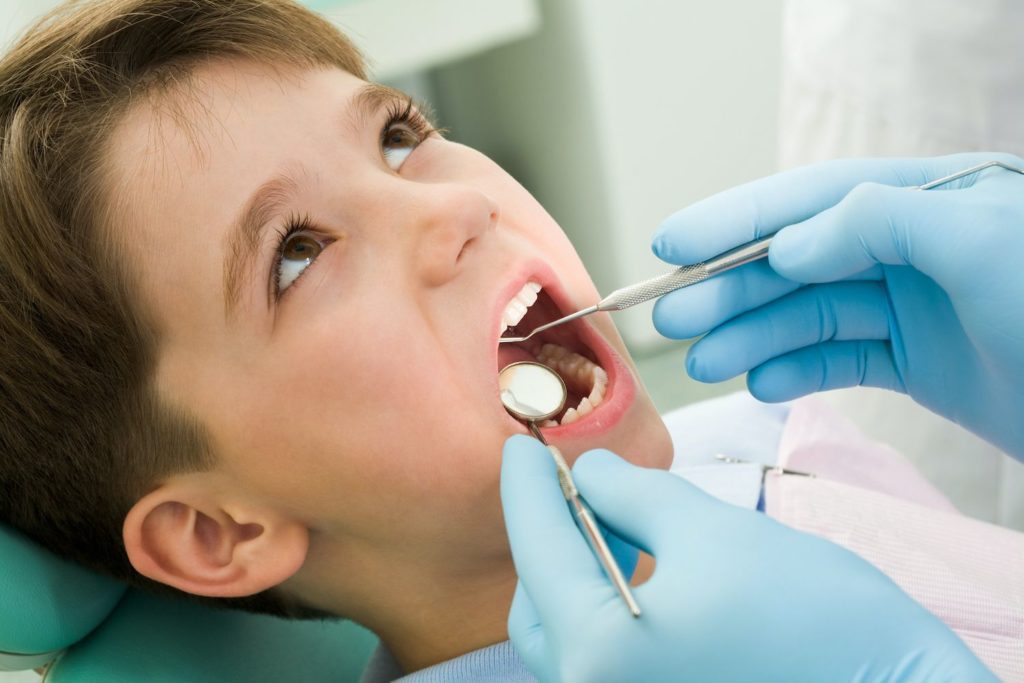Cavities (or dental caries) are holes in the enamel of a tooth that can eventually lead to tooth loss or infection if not treated. In your mouth, there are bacteria that feed on sugar from the food and drinks that you ingest. When the bacteria consume the sugar, it leaves behind an acid that will eat away at your enamel, permanently damaging it.
To treat a cavity, the decayed portion of the tooth must be removed and replaced with a filling to stop the decay of the tooth and to support the portion of the tooth that is left. Cavities can occur in both adult and baby teeth alike, but you may wonder if it is even really necessary to get fillings in baby teeth. Baby teeth are in fact not permanent, so why even bother to go through the hassle of the procedure?

All Teeth Are Important
Baby teeth—or milk teeth—usually begin to come in at around six months of age to a year old. Their adult teeth lie in the gums for years until about age six or seven when the baby teeth begin to fall out.
While baby teeth do fall out, they are still important to take care of properly, especially if they have cavities. Cavities are a product of a decaying tooth, so if left untreated, they could have serious consequences.
As a cavity progresses, there will be pain and discomfort involved, and baby teeth are no exception. If the decay moves into their adult teeth, it can cause problems with eating and speaking well into adulthood.
Even in baby teeth, tooth decay is important to fix. It can affect the health of their adult teeth before they break the surface. Once a tooth has a cavity, it can progress into major tooth decay, and tooth decay can cause infection, tooth loss, or gum disease. Any infection in the mouth can be dangerous to other systems in the body and their overall health.
Prevention Is Key
In order to avoid getting cavities, your child should have a comprehensive dental care routine. Just like adult teeth, baby teeth should be brushed at least twice a day with child-friendly toothpaste. You should also floss these teeth once daily. Children should also visit the dentist twice a year for regular dental check-ups and cleanings.
Cavities in children can be an indicator of poor diet. Sweet treats that are popular with children are high in sugar, which is one reason why cavities form. If your child is developing cavities and has no other biological factors that would contribute to the formation of cavities, you should take a look at the amount of sugar that your child consumes.
A child’s oral care routine should be just as important as yours. Studies suggest that dental hygiene in childhood can be a gauge of dental hygiene in adulthood. This would mean that habits formed in these formative years can last a lifetime.
